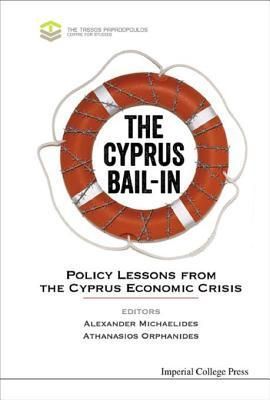
The Cyprus Bail-in Policy Lessons from the Cyprus Economic Crisis
' On June 28th 2012, the small island of Cyprus became the fifth government to request an economic bail-out from the Eurozone after losing access to international capital markets. Less than a year later, a €10 billion second rescue deal was agreed upon — an unprecedented agreement that bailed in creditors of Cyprus'' two largest banks, and triggered an economic crisis that the nation still struggles to recover from today. This resourceful collection of essays provides a thorough and in depth analysis of how Cyprus reached the point of failure and what lessons this experience holds for future economic crises. The various perspectives collectively address unanswered questions, including whether the bail-in can be considered successful, why the recession was less severe than expected, and what conclusions can be drawn about stress-testing exercises across borders. Focusing on one of the (proportionately) largest crises in financial history, the case study will prove essential to policy-makers and politicians, especially in the euro area. Contents:Cyprus in Crisis: What Happened in Cyprus?:Cyprus in the Eurozone (Michalis Sarris)Self-Fulfilling Prophecies in the Cyprus Crisis: ELA, PIMCO, and Delays (Stavros A Zenios)Handling of the Laiki Bank ELA and the Cyprus Bail-In Package (Costas Xiouros)Cyprus: From Boom to Bail-In (Alexander Michaelides)What Happened in Cyprus? The Economic Consequences of the Last Communist Government in Europe (Athanasios Orphanides)Overcoming a Crisis:The Cyprus Crisis: Lessons, Challenges, Opportunities (Sofronis Clerides)Overcoming the Crisis in Cyprus (Gikas A Hardouvelis)Making the Best of It: Lessons from Ireland''s Experience in an EU/IMF Programme (Alan Ahearne)The Future of the Euro Area:Large versus Small States in the Eurozone, The Democratic Deficit, and Future Architecture (Yannis M Ioannides)The European North-South Divide: Dealing with the Poor Relative (Michael Haliassos)The Future Monetary Architecture in the Eurozone (Lorenzo Bini Smaghi) Readership: Policy-makers, especially within the Euro-Area, politicians contemplating entry into a currency union (future members of the Euro-Area) or politicians contemplating separation from a unified state while maintaining a currency union. Key Features:No competing titles in the marketContains analyses and lessons learnt from the bail-inKeywords:Cyprus Crisis;Bail-in;Stress Tests;Sovereign Debt Crisis;Banking Crisis;Euro;Emergency Liquidity Assistance'